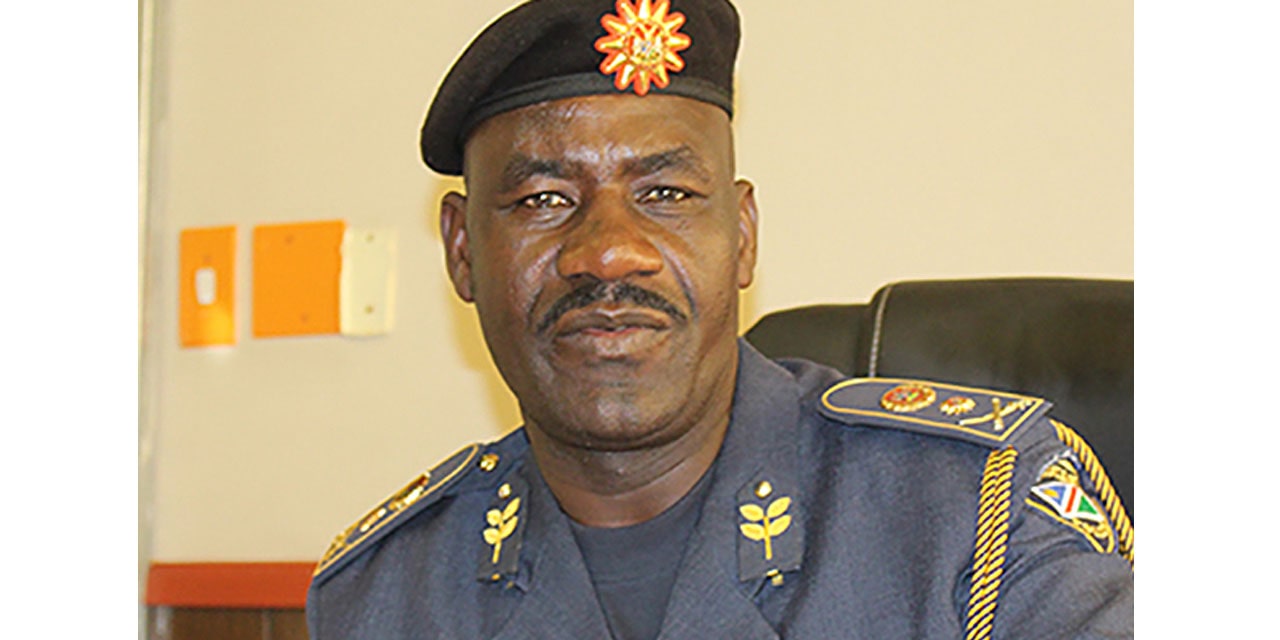Niël Terblanché
The Namibian Police introduced a series of new traffic law enforcement directives aimed at improving road safety and increasing trust between the public and law enforcement officers.
These measures, outlined in a circular issued on Thursday by the Inspector General of the Namibian Police, Lieutenant General Joseph Shikongo, stress the importance of visibility, fairness, and discretion in traffic law enforcement practices.
The directives come in response to numerous complaints from road users regarding unsafe practices by some traffic officers, particularly those rushing into roads to stop vehicles or positioning speed traps in concealed locations.
Shikongo said that these incidents have caused concern among the public, leading to near-misses and raising questions about the safety and transparency of traffic operations.
“In light of these issues, the need for a more visible, transparent, and equitable approach to traffic law enforcement is vital for improved service delivery,” he said.
One of the key directives focuses on the compulsory use of high-visibility reflective jackets by traffic officers, especially those wearing camouflage uniforms.
The directive mandates that officers wear these jackets at all times while on patrol or when conducting speed measurements.
This measure is intended to enhance officer safety and reassure the public of their presence, reinforcing public trust in law enforcement efforts.
Another important directive involves the correct placement of speed-measuring instruments, which must now be positioned no more than three metres from the road’s edge.
This measure aims to ensure that officers can safely operate these devices while reducing the risk of accidents for both officers and motorists.
Officers have also been instructed to avoid concealing traffic enforcement vehicles behind shrubs, culverts, or trees, a practice that has been criticised for undermining transparency and encouraging non-compliance among drivers.
Shikongo’s new directives also include a call for increased patrols on national roads, with a focus on shaping driver behaviour through proactive engagement rather than punitive measures.
“Officers are encouraged to issue courtesy notifications or warnings for minor infractions where appropriate, rather than imposing immediate penalties,” he said.
According to Shikongo, this approach is intended to create a more cooperative relationship between law enforcement and the public while also promoting education and voluntary compliance over punishment.
A key aspect of the new directives is the equal treatment of all road users.
Shikongo reminded all officers of their duty to apply the law uniformly, ensuring that all individuals are treated fairly, regardless of their status or background.
“This is a fundamental step towards upholding justice and fairness in traffic enforcement,” he said.
The directives also address the maintenance and proper use of government-owned vehicles, including police vehicles.
Shikongo instructed the various unit commanders to enforce regulations regarding the roadworthiness of all vehicles, ensuring that they were systematically inspected, repaired, and maintained.
He also addressed the misuse of state-owned vehicles.
“Allowing unauthorised persons to use state-owned vehicles or neglecting maintenance, will lead to disciplinary actions,” he said while also reiterating the importance of accountability within the rank and file of the police.
Shikongo said that these new operational directives should be accepted as a shift in the approach to traffic law enforcement in Namibia, which should also reflect a commitment to improving road safety, increasing public trust, and ensuring fairness and transparency in law enforcement practices.
He added that the implementation of the new measures aims to enhance the overall effectiveness of the police’s traffic law enforcement operations in order to create a more positive relationship with the public.
At the same time, Shikongo encouraged road users to comply with traffic laws and cooperate with officers at all times to ensure that tragedies on the country’s roads do not occur.




